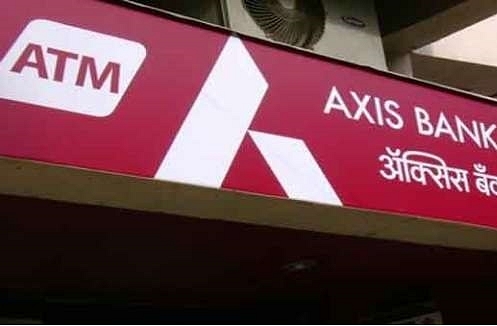Economy
With CEO In Exit Mode, Axis Bank Could Be Takeover Target; But Predators Have To Wait
- Here are three reasons why the vultures have to wait.

An Axis Bank branch in Mumbai.
With Axis Bank announcing the exit of its CEO Shikha Sharma by year-end, vultures may begin circling over the bank. Nomura Bank has already suggested that this may be the right time for Kotak Mahindra Bank to bid for Axis, thanks to the latter’s higher valuation multiples. At current market prices, Kotak’s market capitalisation is around Rs 2,13,000 crore against Axis’s 1,38,000 crore. A bid based partly in cash and rest in share will be vastly to the benefit of Kotak.
Nomura says that a merger would make Kotak the largest private bank in terms of branches, higher even than ICICI Bank’s 4,860 (against 5,760 for Kotak plus Axis). Its loan book would be nearly as large as big daddy HDFC Bank, at Rs 6.16 lakh crore against the latter’s Rs 6.31 lakh crore, says an Economic Times report quoting Nomura.
But the vultures have to wait. For three reasons.
First, no bidding can happen without a wink and a nod from the government, since government institutions, including the Special Undertaking of the UTI (SUUTI) and LIC, among others, hold over 26 per cent of Axis shares. Through various institutions, the government is the key promoter of Axis.
Second, Kotak can bid, but it will face equally strong rivals. Some time last year, when Kotak is understood to have approached the government for buying out its SUUTI stake, HDFC Bank immediately woke up to the threat and CEO Aditya Puri talked about being interested. One can’t rule out foreign banks bidding for Axis if the field is open for them. It will be a feeding frenzy – and hence costly for the eventual winner.
Three, creating bigger and bigger private bank colossuses through mergers will not be in the government’s short-term interests. If HDFC Bank and Kotak (assuming it gets Axis) become the biggest two banks in the private sector, it will force an even greater consolidation in the private banking space, with other high-value banks (IndusInd, Yes Bank, etc) getting into the picture. This will leave public sector banks as poor cousins of private banks and a permanent liability on the government’s hands. Uday Kotak has already said that over the next five years, private banks will raise their market share to 50 per cent from 30 per cent today. The government should worry that the jewels in its banking crown are fast turning to charcoal.
Support Swarajya's 50 Ground Reports Project & Sponsor A Story
Every general election Swarajya does a 50 ground reports project.
Aimed only at serious readers and those who appreciate the nuances of political undercurrents, the project provides a sense of India's electoral landscape. As you know, these reports are produced after considerable investment of travel, time and effort on the ground.
This time too we've kicked off the project in style and have covered over 30 constituencies already. If you're someone who appreciates such work and have enjoyed our coverage please consider sponsoring a ground report for just Rs 2999 to Rs 19,999 - it goes a long way in helping us produce more quality reportage.
You can also back this project by becoming a subscriber for as little as Rs 999 - so do click on this links and choose a plan that suits you and back us.
Click below to contribute.
Latest